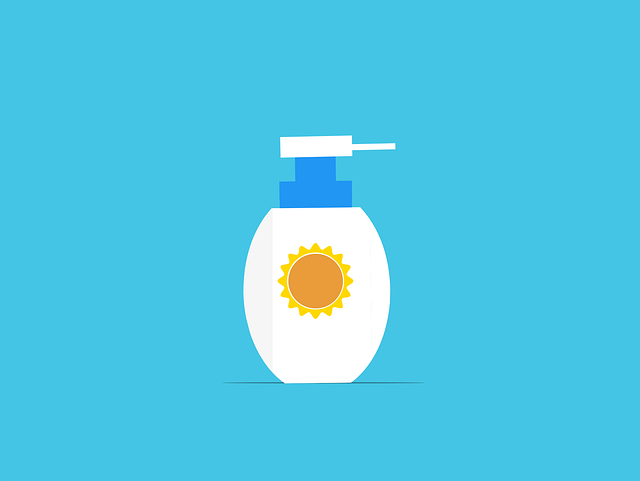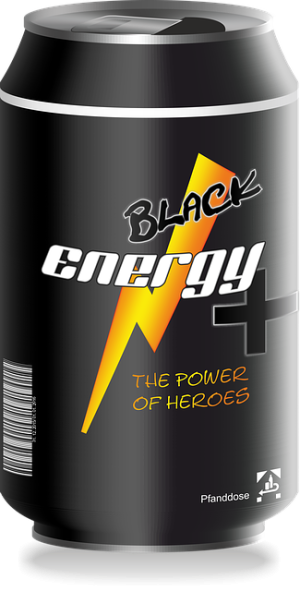Collagen stimulation is a key strategy to combat signs of aging as it declines with age. Techniques include topical applications, peptides, vitamins, and lifestyle adjustments. These methods can significantly improve skin texture, elasticity, and radiance. Essential triggers for collagen stimulation include broad-spectrum sunscreens, antioxidant-rich skincare, adequate sleep, balanced diet, and proper hydration. Topical boosters like retinol, vitamin C, peptides, and Hyaluronic Acid are effective but results vary. A diet rich in essential amino acids, antioxidants, zinc, and magnesium supports collagen production. Lifestyle changes such as regular exercise and adequate sleep also enhance skin elasticity. Advanced techniques like microneedling and fractionated laser therapies offer precise collagen stimulation. Collagen supplements come in various types for specific concerns, with proper consultation and high-quality products recommended. Future innovations include topical applications, peptides, and non-invasive treatments for personalized collagen regeneration.
“Unveil the secrets to achieving radiant skin with our comprehensive guide on collagen boosting. Collagen, the skin’s foundational protein, plays a pivotal role in maintaining youthfulness. As we age, natural processes lead to collagen degradation, prompting wrinkles and loss of elasticity. This article explores effective strategies for stimulating collagen production. From understanding the basics of collagen and its impact on skin health, to uncovering topical boosters, dietary interventions, lifestyle changes, and advanced techniques—we delve into every aspect of collagen stimulation. Discover the latest trends and expert insights for a rejuvenated complexion.”
Understanding Collagen: The Skin's Foundation

Collagen is a protein that acts as the very foundation of our skin, providing structural support and elasticity. It’s responsible for the skin’s youthful appearance, resilience, and overall health. As we age, natural production of collagen slows down, leading to visible signs of aging such as fine lines, wrinkles, and saggy skin. Understanding this process is key to unlocking the benefits of collagen stimulation.
Collagen boosting techniques aim to rejuvenate the skin by encouraging the body’s natural production of collagen. Through various methods like topical applications, peptides, vitamins, and certain lifestyle changes, it’s possible to stimulate collagen synthesis. This, in turn, can result in improved skin texture, enhanced elasticity, and a more radiant complexion, effectively turning back the clock on signs of aging.
Aging and Collagen Degradation: A Natural Process

Aging is an inevitable process that brings about significant changes in our bodies, including our skin. One of the most noticeable signs of aging is the gradual decline and degradation of collagen, a protein responsible for providing structure, elasticity, and youthful radiance to our skin. Collagen plays a crucial role in skin health and resilience, allowing it to bounce back from physical stress and maintain its smooth, supple texture.
As we age, our bodies naturally produce less collagen, leading to a decrease in skin firmness and an increase in fine lines and wrinkles. This degradation is accelerated by various factors such as sun exposure, environmental pollution, and lifestyle choices. The process of collagen stimulation becomes essential for counteracting these effects and promoting skin renewal. Through targeted skincare routines and certain lifestyle adjustments, boosting collagen levels can help recover some of the skin’s natural elasticity and resilience, leading to a more youthful appearance.
Unlocking Collagen Production: Key Triggers

Unlocking Collagen Production: Key Triggers
Collagen stimulation is a critical aspect of skin renewal, as it involves encouraging the body to produce more collagen, a protein essential for maintaining skin elasticity and youthfulness. Several factors play a pivotal role in triggering this process. One of the primary drivers is consistent sun protection. Daily use of broad-spectrum sunscreen helps prevent UV damage, which can inhibit collagen production. Antioxidant-rich skincare products also prove effective; they neutralize free radicals that break down collagen fibers, thereby supporting its synthesis.
Additionally, certain lifestyle habits significantly impact collagen levels. Adequate sleep allows the body to repair and regenerate cells, including those responsible for collagen output. A balanced diet rich in vitamin C, copper, zinc, and other essential nutrients provides the building blocks necessary for collagen formation. Even hydration matters; staying well-hydrated ensures that skin cells receive the moisture required for optimal function and collagen production.
Topical Collagen Boosters: What Works and What Doesn't

Topical collagen boosters have gained significant attention in the skincare industry, promising younger-looking skin and enhanced collagen stimulation. However, not all products deliver on their claims. When it comes to effective collagen boosting, ingredients like retinol, vitamin C, peptides, and Hyaluronic Acid stand out for their ability to stimulate collagen production or support existing collagen fibers. These powerhouses increase cell turnover, encourage the synthesis of new collagen, and improve skin hydration, resulting in a more supple and elastic complexion.
On the other hand, some commonly marketed collagen boosters may not live up to their promises. Ingredients with minimal scientific evidence supporting their collagen-boosting properties might offer superficial benefits but fail to address deeper structural changes required for significant skin renewal. Additionally, certain claims regarding rapid or dramatic results can be misleading. Realistic expectations are crucial; collagen stimulation is a gradual process, and consistent use of effective products over time is key to seeing noticeable improvements in skin texture, fine lines, and overall radiance.
Dietary Interventions for Optimal Collagen Synthesis

Collagen, the skin’s primary structural protein, plays a vital role in maintaining its elasticity and youthful appearance. To stimulate collagen synthesis, dietary interventions are key. A balanced diet rich in amino acids, particularly proline, lysine, glycine, and arginine, provides the building blocks necessary for collagen production. These essential amino acids can be found in foods like citrus fruits, berries, nuts, seeds, eggs, lean meats, fish, and dairy products.
Additionally, incorporating antioxidants such as vitamin C and E into your diet helps protect collagen fibers from oxidative damage caused by free radicals. Foods high in these antioxidants include brightly colored fruits and vegetables, like oranges, strawberries, spinach, and broccoli. Other beneficial nutrients for collagen synthesis include zinc, found in oysters, beans, and nuts, and magnesium, abundant in leafy greens, whole grains, and avocadoes.
Lifestyle Changes to Stimulate Collagen Renewal

To stimulate collagen renewal and support skin elasticity, lifestyle changes play a significant role. A balanced diet rich in fruits, vegetables, lean proteins, and healthy fats is essential for providing the necessary vitamins, minerals, and antioxidants that promote collagen production. Foods high in vitamin C, such as citrus fruits and bell peppers, are particularly beneficial as they aid in collagen synthesis and protect skin cells from damage.
Additionally, regular physical activity and adequate sleep are crucial for collagen stimulation. Exercise increases blood flow to the skin, delivering essential nutrients and promoting cell turnover. Meanwhile, quality sleep is vital for the body’s natural repair processes, allowing skin to regenerate and heal efficiently. By incorporating these lifestyle adjustments, individuals can enhance their skin’s ability to produce and maintain collagen levels, contributing to a youthful and radiant complexion.
Advanced Techniques for Boosting Collagen Levels

In the pursuit of achieving radiant, youthful skin, collagen stimulation has emerged as a powerful tool in the skincare industry’s arsenal. Advanced techniques now allow for more targeted and effective ways to boost collagen levels, addressing one of the primary factors of skin aging. Beyond traditional methods like retinol and vitamin C serums, cutting-edge innovations such as microneedling and certain laser therapies have proven to stimulate collagen production on a deeper level.
Microneedling involves using fine needles to create tiny punctures in the skin, triggering a natural healing response that boosts collagen synthesis. Laser treatments, specifically those utilizing fractionated light, work by stimulating fibroblasts to produce new collagen fibers. These techniques offer precise and controlled approaches to collagen stimulation, ensuring effective results while minimizing potential side effects compared to more invasive procedures.
Collagen Supplements: Dosage, Types, and Safety

Collagen supplements have gained popularity as a way to support skin renewal and boost collagen stimulation. When considering collagen supplementation, it’s crucial to understand dosage and types available, as well as any potential safety concerns. The recommended daily intake of collagen peptides varies depending on the specific product and individual goals, but typically ranges from 1-20 grams. Different types of collagen supplements target various skin concerns; for instance, type I collagen is often sought for its ability to promote elasticity and reduce fine lines, while type II collagen supports skin hydration and firmness.
Safety should always be a priority when taking any supplement. Collagen generally considered safe for most adults when consumed orally. However, individuals with certain medical conditions or allergies should consult their healthcare provider before starting any new supplement regimen. Additionally, it’s essential to choose high-quality, reputable collagen products to ensure purity and effectiveness. Always read labels carefully and opt for options free from unnecessary additives or fillers.
The Future of Collagen Enhancement: Emerging Trends

The future of collagen enhancement is exciting, with emerging trends focusing on both natural and technological advancements. One promising area is collagen stimulation through topical applications and innovative delivery systems. Scientists are exploring ways to boost collagen production at home, making skincare routines more effective. This includes the development of advanced peptides, which mimic the body’s natural signals to encourage collagen synthesis.
Additionally, technology like low-level laser therapy (LLLT) and microcurrent devices is gaining traction for their potential to stimulate collagen regeneration. These non-invasive treatments offer a future where skin renewal can be personalized and tailored to individual needs, promising younger-looking, more vibrant complexions without invasive procedures.
